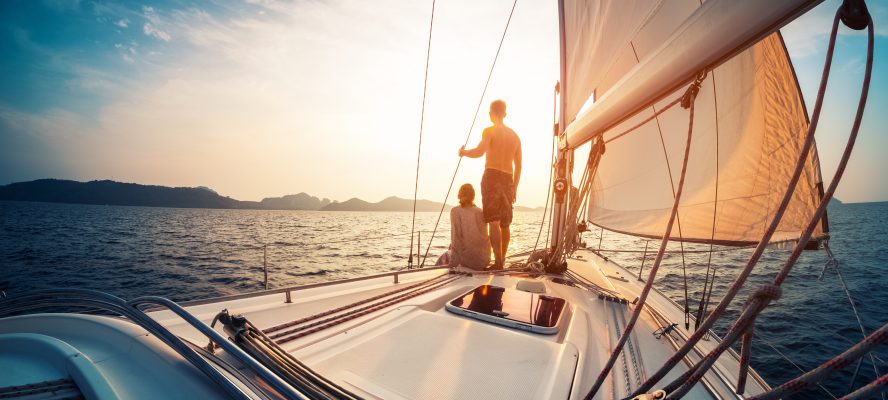With recreational boating season well underway, the attorneys at ACW&N want everyone to stay safe while enjoying the water. A float plan is a great way for boaters to keep safe this summer.
It’s always important to have a game plan when you’re operating a vessel out in the ocean, harbor, or sound. When an emergency occurs, it can be hard for someone to remember details concerning your boat and its passengers. In fact, it may not even be possible to call for help from a vessel in distress. That’s why it’s important to have a float plan. It’s a safety measure that could potentially save lives.
While traveling on a vessel can be fun, it can also be dangerous. The sea is a hazardous place with many different kinds of risks – and this goes for any type of boat. A float plan is equally effective for the owner of a 48-ft express cruiser as it is for the operator of a 10-ft kayak. Any experienced recreational boater can tell you that you need to expect the unexpected.
A float plan is essentially what is going to stay behind on shore with a family member or friend in case of an emergency. It includes information about the vessel such as the year, make and model, length, and prominent features. The plan also provides details regarding the excursion. It will detail the purpose of the trip, time of departure, place of departure, expected time of return, expected place of return and destination. If a boater does not check in according to the float plan, that may be the first indication that something has gone wrong and assistance from the Coast Guard is necessary.
In 2019, the United States Coast Guard responded to over 4,000 boating accidents resulting in over 600 boater deaths. Although a float plan is important to have, unfortunately, not many boaters make it a priority to file one. A concise and detailed float plan can help minimize the loss of passengers on the water. Boaters that should prepare float plans include kayakers, hunters, jet skiers, water skiers, rowers, rafters, sail boaters, power boaters, and family day cruisers.
Do you need assistance creating a float plan? The United States Coast Guard Auxiliary has resources to help online. The Coast Guard also provides a free fillable form. There’s even a free application for your mobile device.
If you or someone you know has been injured in a boating accident, we urge you to contact BOATLAW, LLP. With offices in Washington, New York City, Oregon, California and Alaska, our attorneys have represented recreational boaters for over forty years. We have a strong track record of success. The first consultation is free of charge, so give us a call today at 1 (800) 262-8529.












